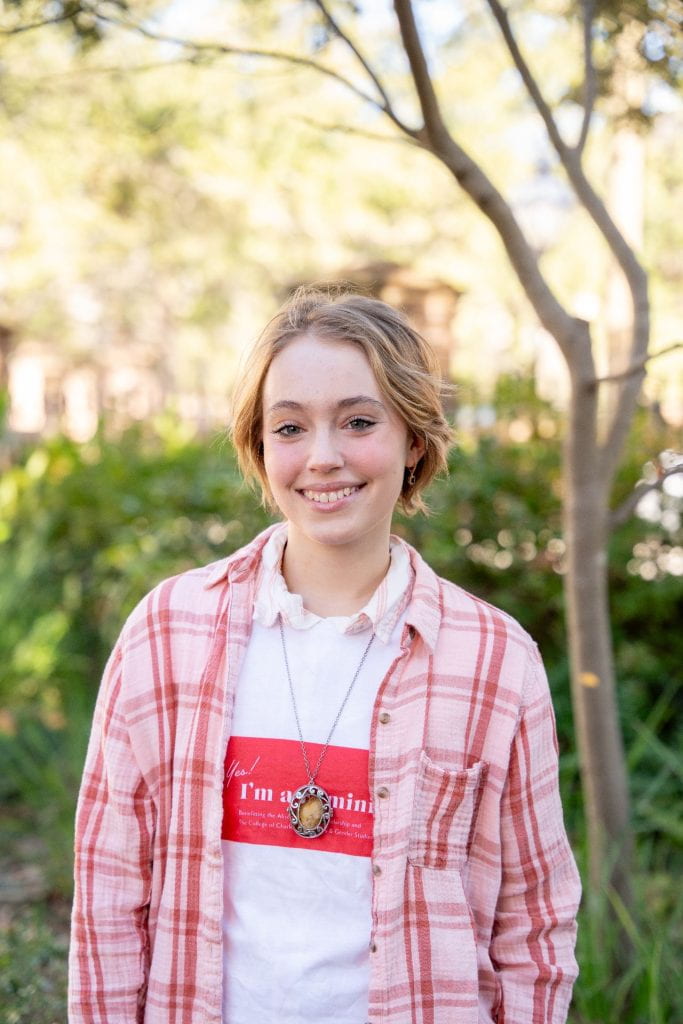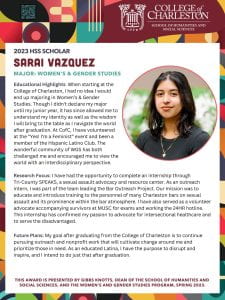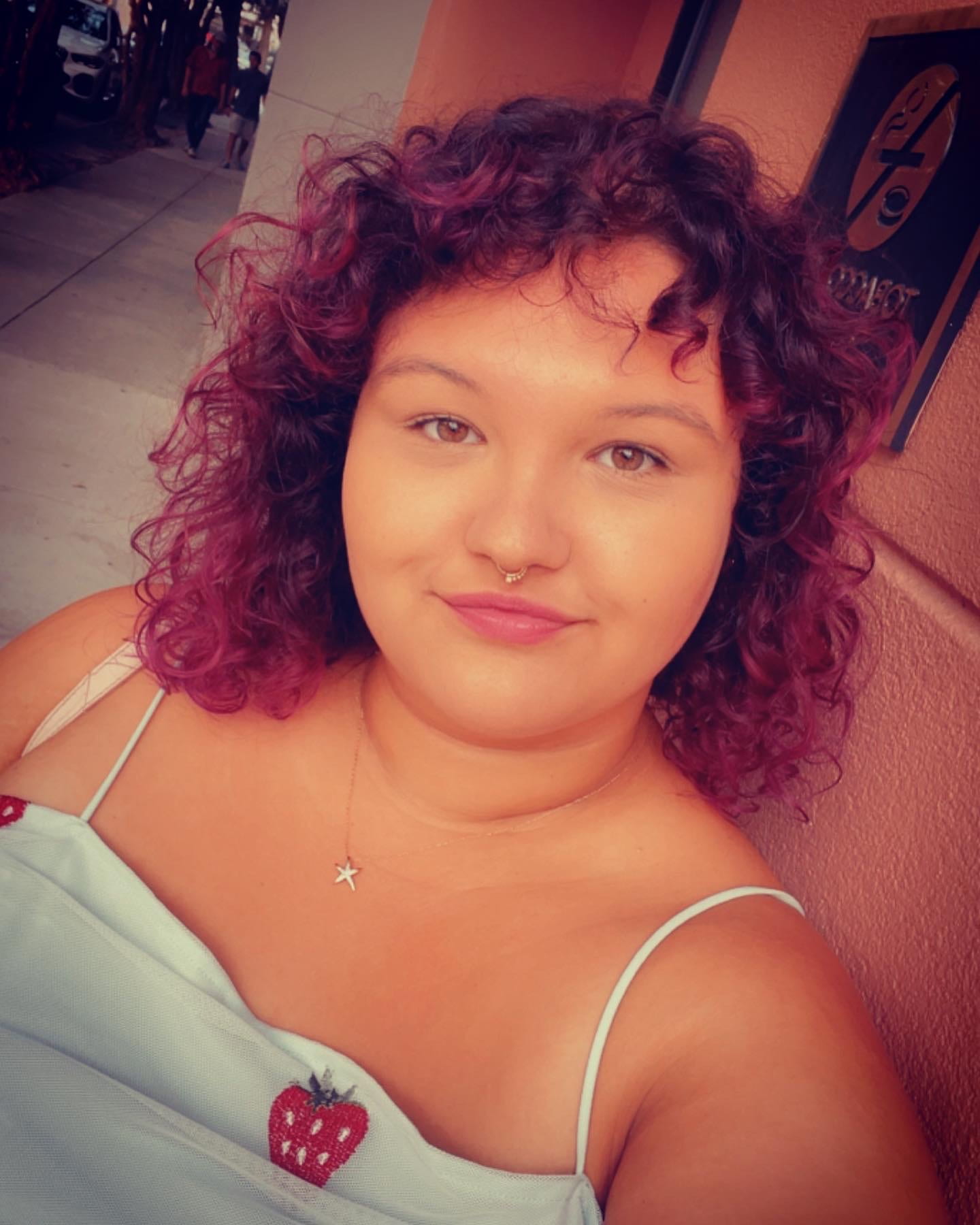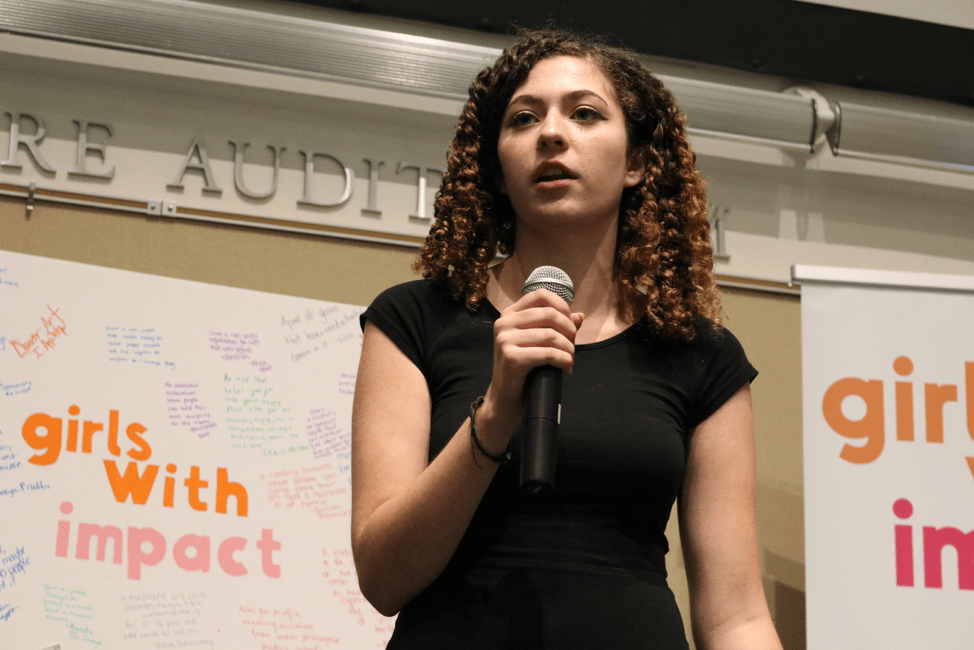What is your hometown, your pronouns, and your major(s)/minor(s)?
I was born and raised in Raleigh, NC. Both of my parents met at NC State University and settled in Raleigh. My pronouns are She/They. Currently I am a double major! Women’s and Gender Studies (BA) is one of them and the other is Biology (BA).
What areas/aspects of women’s and gender studies (WGS) do you find most engaging/interesting/what are you most passionate about?
I find everything under the Women’s and Gender Studies program here fascinating. If I had to pick one topic, it would be Black feminism. I am currently reading “This Bridge Called My Back” and I feel that I have learned so much about the history of the feminist movement, which has not always supported or upheld all women, specifically Black women and people of color. The feminist movement historically has focused on a lot of white women’s wants and needs without acknowledging their innate privilege of being white — without taking a step back for Black women to take the stage.
Tell us about any extracurricular work that you’re doing (ex. volunteering/local activism), or any involvement you have on campus with clubs/organizations.
Currently on campus, I am pursuing conducting research with Dr. Arroyo over the summer and possibly another opportunity with my mentor on campus.
I am also a student worker at the Pride Center on 9 1/2 Glebe Street. At the Pride Center, I am the Q’rdinator of the Honors Engaged program that is partnered with the center and Honors College. I supervise student tasks, their volunteer hours, and events that the Pride Center hosts for the Queer community (although not exclusively if any others want to participate!). Along with that, I help Dr. Simmons with the Out To Lead program.
Outside of campus, I am a volunteer at MUSC’s Shawn Jenkins Children’s Hospital and recently reached my goal of 100 volunteer hours. I am continuing my volunteer work there until I can secure a position as a patient care technician.
What impact have WGS courses had on you? and/or: Why should every CofC student take a WGS class before they graduate?
The WGST courses on campus have had such a huge impact on my life. My first class was Introduction to Women’s and Gender Studies taught by Dr. Dominguez. The least I can say about that course was how eye-opening things became for me during and afterward. When I came to campus my first year, I was strictly a Biology BS major and was headed on a narrow pre-health tract. I attended a majors/minors fair that was held by the Honors College, which is when Dr. Dominguez and I first met. Dr. Dominguez understood that I want to be the kind of physician who listens to others and their needs; not excluding their past experiences and story. I want to look at things through an intersectional lens, and the field of Women’s and Gender Studies helps me to do so. I have met so many wonderful people along the way who have been so supportive of me. Lastly, Dr. Dominguez helped foster such a safe community in the classroom in which we could make mistakes and learn from one another. This gave me the confidence to come out as Queer, and I couldn’t be any more grateful. Truly. Thank you Dr. D.
What are your plans and goals after graduation?
Even though graduation is still a ways away from me, I have always had a passion for working with children, and I hope to do so as a pediatrician. More specifically as a physician assistant (PA) specializing in pediatrics.
I plan to apply to a few graduate PA programs, one at MUSC and one at UNC Chapel Hill.
Ultimately I hope to find calm in all of the chaos that is life and keep my center — my core values and defining memories — tightly against me. Hopefully, somewhere in there I get married and have a few kids of my own, but I can wait on that bit for now.








